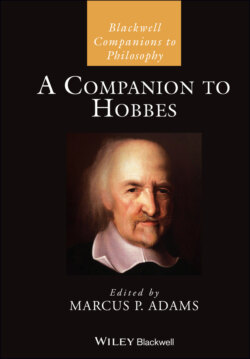Читать книгу A Companion to Hobbes - Группа авторов - Страница 31
2 The Stoic Roots of Hobbes’s Natural Philosophy and First Philosophy
ОглавлениеGEOFFREY GORHAM
While Hobbes’s Natural Philosophy and First Philosophy are indebted to many sources, including fellow travelers (like Bacon and Galileo), late Aristotelians (like Zabarella and the Coimbra Commentators), and the Greeks themselves (like Aristotle and the Epicureans), the Stoic influence is not yet fully clear. To be sure, the impact of Classical and Renaissance Stoicism and Epicureanism upon Hobbes’s political philosophy has been well documented (Springborg 2010; Tuck 1983). But the Stoic roots of his science and metaphysics have not been so thoroughly investigated. This imbalance is especially worth correcting since the Stoics and Hobbes both aimed to unify all the branches of knowledge. And as thoroughgoing materialists, they both endeavored to find a place for the apparent “incorporeals”, space, time, causality, and God. One option was simply to deny the reality of these beings, and indeed Hobbes has often been characterized as an idealist about space and time, a subjectivist about the causal connection, and an atheist about God. But such characterizations are problematic insomuch as space, time, causality, and God all play important roles in Hobbes’s decidedly realist program in natural philosophy. We can better appreciate the subtlety of Hobbes’s metaphysics and science by tracing its Stoic pedigree.
The brief first part of this chapter identifies three main sources of the Stoic elements in Hobbes’s philosophy: the early Christian-Stoic Tertullian, the modern “Neo-Stoic” school of Justus Lipsius, and the natural philosophers of the Cavendish Circle he frequented. The longer second part explores in detail the Stoic character of Hobbesian space, time, causality, and God, especially as these notions are employed in his natural philosophy. We shall see that Hobbes’s metaphysical views, though quite unorthodox in his day, served to buttress his overall materialist, empiricist, and mechanist program in natural philosophy.
